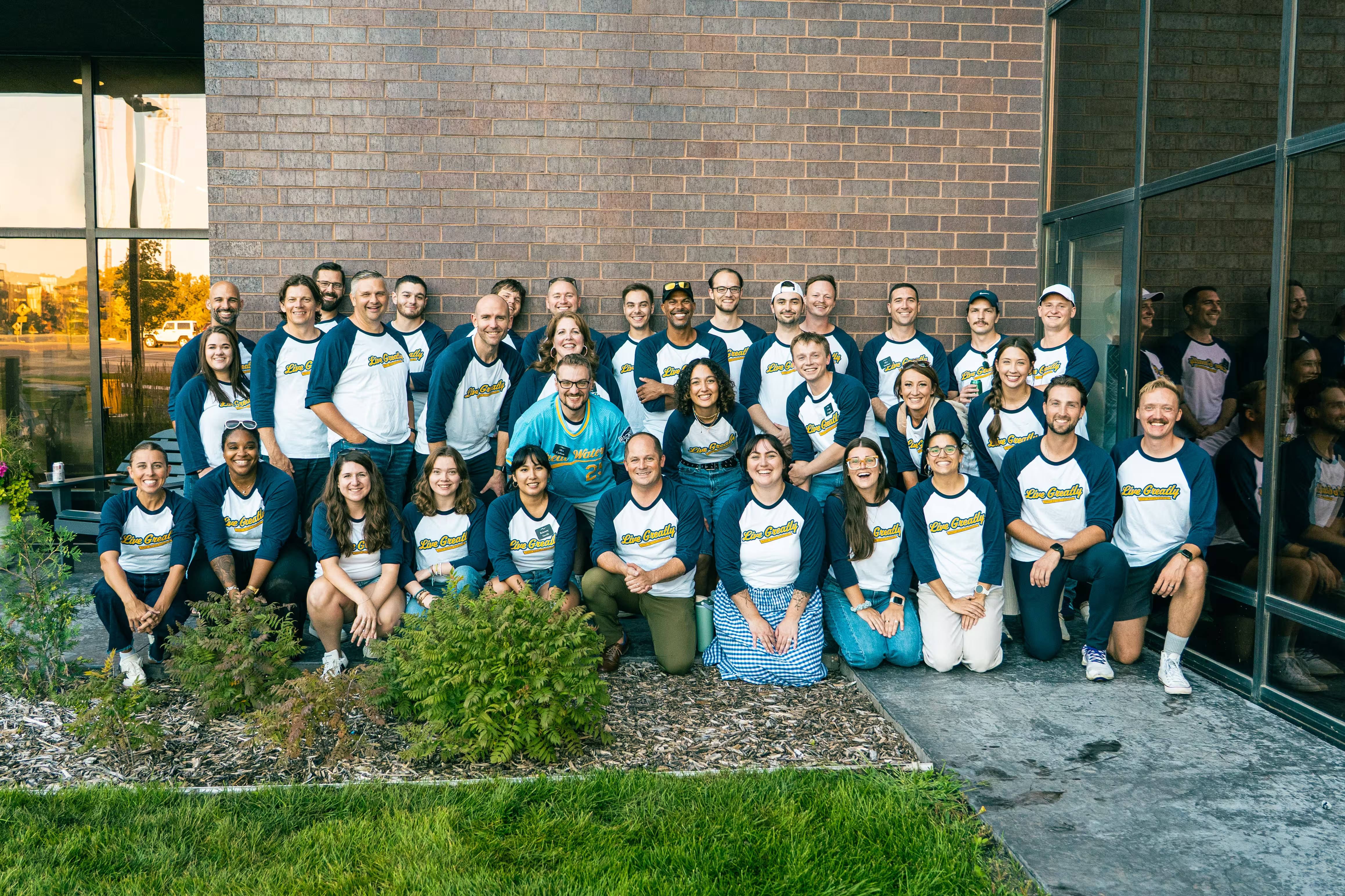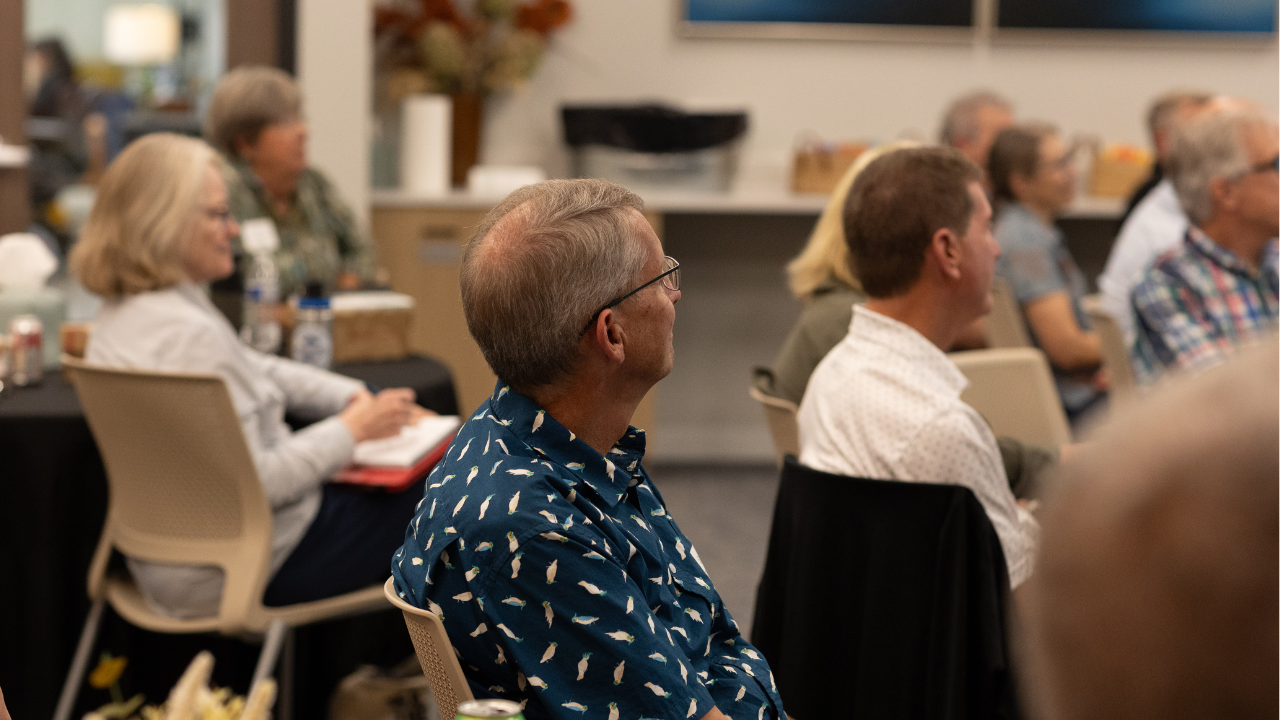Live Greatly®
Build a meaningful plan for all of life.
Power it with a smart financial plan.
We help you create a plan that moves with you.
We offer tailored services designed to meet your unique financial needs.
Our expertise spans financial planning, investment management, life planning, and more to help you achieve your goals.
Build a plan for your income and spending in retirement.

Growth-minded and risk-aware investing to help you reach your goals.

Personalized plans to secure your legacy and care for those you love.

Proactive strategies to help you keep more of what you earn.

Expert support to help you choose the right coverage with confidence.

A plan for all of life with the "Compass: Live Greatly® Guidebook".

Powerful planning. Purposeful living.
Combining smart Financial Planning with Life Planning opens the door to using your money in ways that truly support how you want to live. It brings direction and clarity to make financial decisions easier and more meaningful.
Financial Planning
How much can I spend? What opportunities am I missing? Am I making smart moves? Get real answers.
Upgrade to Financial Planning 2.0
Stick with Financial Planning 1.0

Life Planning
This is where your financial plan becomes more than a document. The "Compass: Live Greatly® Guidebook" is a practical tool to help you create a life plan that informs your financial decisions.
Collaborative planning. Personalized outcomes.
Here you aren't limited to one advisor. In addition to who you meet with, you get a full team of individual specialists working in sync. That means faster answers, deeper insights, and more strategic thinking around every decision. All with no commissions and no hidden agendas.
Community Events
Join us for upcoming Live Greatly events, workshops, and client appreciation experiences.
Learning Center
Explore articles, tools, and resources designed to give insights and empower your future.
Our Company and Philosophy
At Great Waters Financial, we believe in empowering you to Live Greatly®. When you have a clear plan and you understand it, there’s no limit to what’s ahead.

Why Choose Great Waters Financial?
Your financial plan isn’t just a document, it’s a map that offers both clear direction and new paths to explore. This plan combined with our Life Planning process gives you the space to pause, reflect, and gain clarity on what matters most to you. We help uncover what’s already within you.
Whether you need direction, accountability, or just room to get organized, we meet you where you are.
Your values shape the plan. Your vision leads the way.
We’re here to be wind in your sails and help you Live Greatly®.
Salaried Team
We're on your side. Aligned with you, not commissions.
Custom and Adaptable Plans
A plan tailored to you and your life.
Whole Picture Planning
Gain a full understanding of where you are and your plan for what's next.
Specialized Advisors
Experts in different areas of planning, working for you.
Continuity Built-in
In an industry where advisor turnover is common, our team is with you for the long haul.
Focus on Living
Build spending plans that balance enjoyment today with security for the future.
Great Water Financial: FAQs
Find answers to your questions about our services, our process, our team, and what to expect.
We offer a wide range of services including retirement income strategies, investment management, tax-efficient planning, and financial analysis. Our holistic approach also includes estate planning, Medicare guidance, support through planned and unexpected life events, and life planning. Every service is tailored to your unique financial picture since your journey is personal.
At Great Waters Financial, we bring together financial strategy and directional life coaching so your plan isn’t just about money, it’s about meaning. Our approach is truly holistic in this way, designed to give you clarity in every part of your plan and the confidence to use your resources for what matters most.
You don’t just get one advisor. You get a full team of individual specialists, working in sync, with no commissions and no hidden agendas. That means every recommendation is grounded in your goals and your plan stays strong.
Our goal? To help you feel free, empowered, and completely unstuck so you can stop wondering if you can enjoy life... and start living it. That’s how we help you Live Greatly®.
The Clarity Framework is a tailored planning process designed to bring order to your finances and purpose to your decisions. Every step is shaped around your life, your goals, and your vision for retirement.
STEP ONE
In our discovery meeting, we take time to understand you and your needs. From there, we move into a deep financial analysis to understand your full financial picture. Using that analysis, we present a blueprint with key opportunities for improvement.
STEP TWO
Next, we answer your questions and start building your Clarity Framework with you, not just for you. This step includes detailed strategies across income, investments, risk management, tax planning, and more.
STEP THREE
Planning isn’t one-and-done. We actively review and refine your plan to keep pace with life. Whether it's a retirement, an inheritance, or an unexpected change, we’re here to keep you moving forward. We also offer specialized services such as Medicare planning, estate planning, and tax strategy.
CREATE YOUR COMPASS
This is where your financial plan becomes more than a document. The "Compass: Live Greatly® Guidebook" is a practical tool to help you create a life plan that informs your financial decisions.
At Great Waters Financial, our advisors are salaried and do not receive commissions on the sale of financial products.
We charge a Planning Fee that covers a comprehensive review of your current retirement strategy, along with personalized recommendations to strengthen your plan. This can include income planning, Social Security timing, protection strategies, and risk management.
If you choose to engage in Professional Asset Management, those services follow a regressive annualized fee schedule based on the assets we manage on your behalf. Other services may be included in your plan or offered à la carte, depending on your needs.
Our goal is to offer full transparency so you understand exactly what you’re paying for and how it supports your vision for retirement. You can expect us to go over our fees in the very first meeting.
We’re here to help. If you have general questions, feel free to reach out using our Contact Us form. For questions about your specific financial situation, you can schedule a free 30-minute intro call with a member of our team. No pressure, just answers.
























































